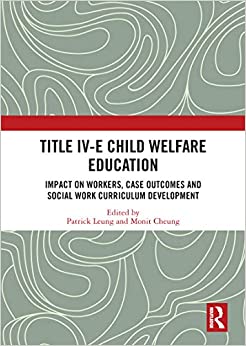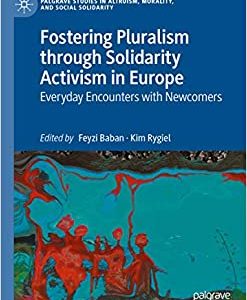BSW/MSW education funded by Title IV-E of Social Security Act ("Title IV-E Child Welfare Education") is an important incentive to encourage social workers to stay in the child protection field. It aims to demonstrate the training partnership between universities and public child welfare agencies.
This book contains essential research results with a focus on the impact of Title IV-E Child Welfare Education to improve worker capacities and case outcomes, as well as on the process and results of social work education in promoting public child welfare work. There are nine chapters written by renowned researchers in public child welfare who applied rigorous quantitative and/or qualitative methodologies to clearly describe measures used, data sources, outcome variables, and implications for education, practice, policy, and research. These evidence-based articles address the following child welfare topics: training partnerships and worker outcomes, effective pedagogy and online education, workplace climate and retention factors, and other topics connecting BSW/MSW education to public child welfare practice. Future child welfare education will need to further expand child welfare knowledge and skills, strengthen worker competencies with a strong commitment to social work values and ethical practice principles, and develop a cohesive supervisory network to build a workforce with positive attitude toward child protection programs.
This collection will inform child welfare educators, administrators and legislators regarding the impact of Title IV-E Child Welfare Education on the development of public child welfare and make recommendations to improve the child welfare curriculum in social work education.
This book was originally published as a special issue of the Journal of Public Child Welfare.











